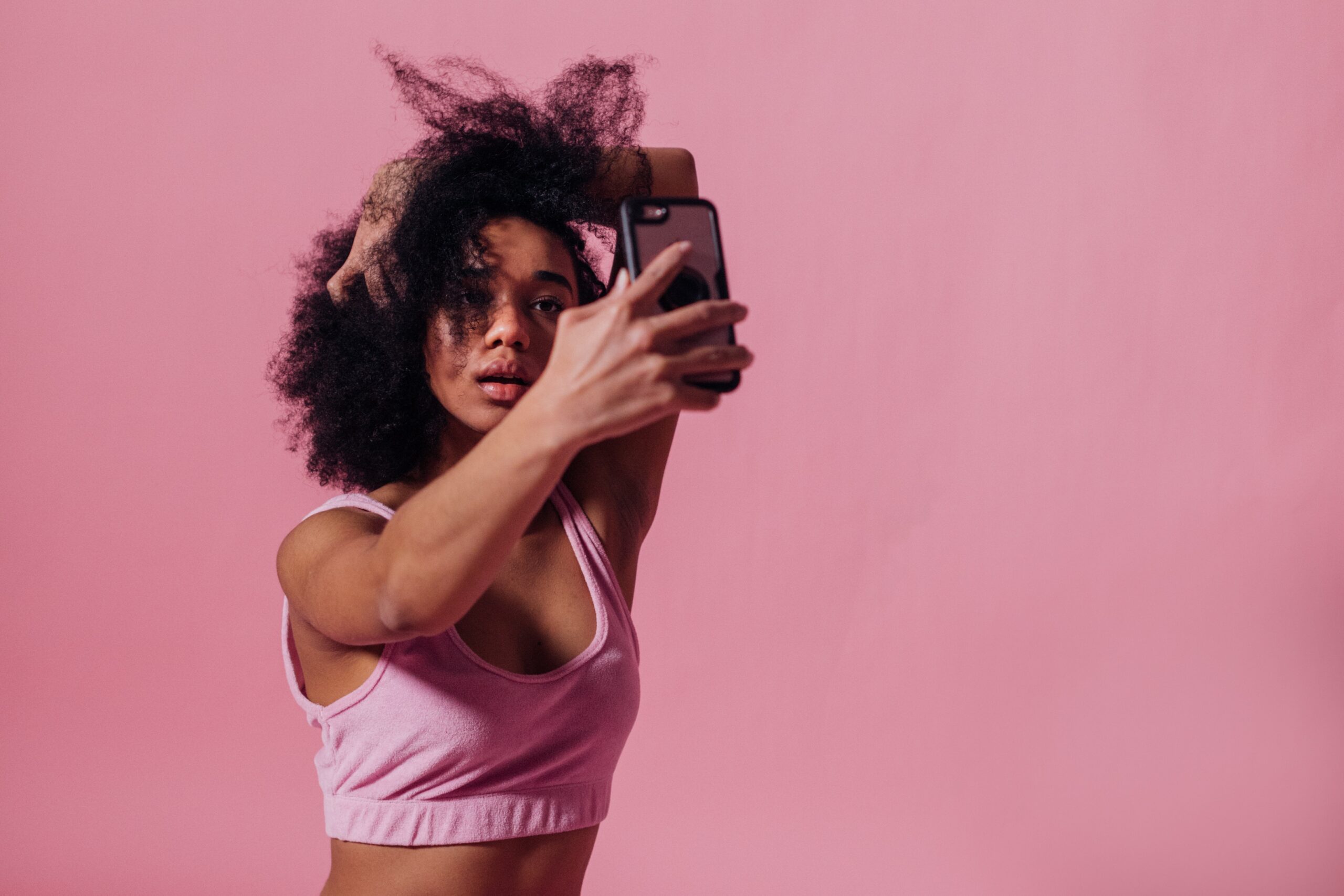The ‘female gaze’ is a feminist theory describing how women look at themselves and the world. The theory resurfaced, causing many to share their thoughts on TikTok. Now, questions about the ‘female gaze’ appear in everyday life.
To answer our questions about the impact of the ‘female gaze’ on Black women, we reached out to Alexis Lee. Lee is the author, speaker, and confidence coach of Style Me Sunday and wrote ‘Feeling Myself’, a memoir about shedding shame to find sexual freedom. She discusses what the female gaze represents and how embodying it could offer empowerment.
What Is The Difference Between The Male And Female Gaze?
Laura Mulvey coined the term ‘male gaze’ in 1975 to question the role of the male perspective in film. It shows us how the heterosexual male perspective is most common in film. The male gaze centers mens viewpoints, and in turn, male perspective’s become the standard. The male gaze historically champions misogynistic and limited versions of femininity.
Lee defines the female gaze as “how we (women) see ourselves and others.”
“Traditionally, the predominant view of women has been through a male gaze. There has been a movement to challenge this lens and decipher how we see ourselves and others through our own eyes,” says Lee.
The male gaze is challenged, almost 50 years later, with the ‘female gaze’. The female gaze focuses on female-centered viewpoints. The female gaze is known to provide alternatives to patriarchal ideas about women. In cinema, the female gaze may translate to camera angles that do not overly sexualizing or objectifying women’s bodies . Beyond cinema, both the female and the male gaze influence the way women are perceived off-screen.
A Reclaimed Gaze
The female gaze expands the ways women show up in the world. This means asking questions about what it means to see and experience life, pleasure, and sexuality from the vantage point of women.
For Lee, some crucial questions include:
- “What is being a woman to me and what does that mean for how I relate to and judge other women around me?”
- “How do I express my femininity in a way that feels true for me?”
- “How have the dominant structures of society and patriarchy, white supremacy and capitalism influenced how I see myself?”
- “What social constructs need dismantling? eg. virginity?”
How Do Black Women Fit Into This?
Notably, Black women are sharing their thoughts and interpretations of the female gaze. ” Black femmes are leading the way on social media by stepping away from the male gaze,” says Lee. As a writer and speaker who disempowers the male gaze by sharing personal approaches to sexual liberation, Lee is an example of this. Lee also notices that Black femmes are forever challenging societal narratives, and taking ownership over how they see themselves.
Black women use their platforms to inspire others to decenter the male gaze. “We are seeing a wave of beautiful Black women being loud and proud like never before. This hugely influences how I see myself and others. I no longer believe being small is the most desirable thing I can achieve. Equally so, I no longer subscribe to the notion that being quiet and classy is the epitome of womanhood,” explains Lee while considering her own journey.
Today, Black women like Lee are embodying and redefining standards of Black femininity. “I do not believe how ‘pretty’ I am is the most interesting and important thing about me. I stand tall and proud with the collective support of my Black peers questioning the stories I need to unlearn, pursuing the quest to relearn new stories and fighting the structures that still discriminate against our Blackness and otherness every single day, hour, minute and second,” adds Lee.
The female gaze is an exciting shift disempowering the male gaze and freeing women to be authentically themselves.
